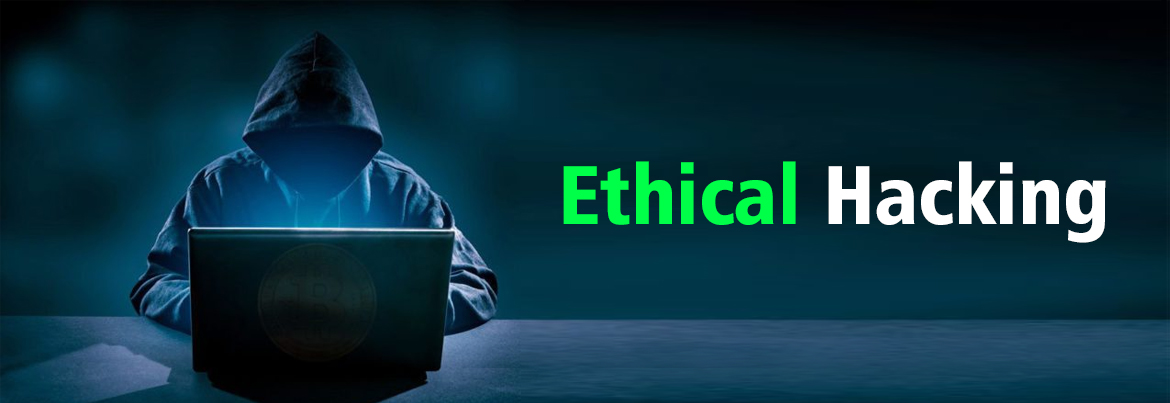As the name suggests, ethical hacking is finding a secure data source in the most valid and legal sense, even if, the word ‘hacking’ makes it sounds unethical or illegal. Data is the key to the modern world. Every aspect of human living utilizes some data to create another set of data.
Ethical Hacking
Many industries like banking, finance, cyber security, defence sector, healthcare, and the like are central data creation and utilization sources. These institutions hold a lot of sensitive data, and they need extensive protection from wrong or unwanted hands. For this, ethical hacking becomes a necessary skill employed to understand the threats so that data is practically secured. Thus, the threats are neutralized even before they arise or as soon as they occur. Anyone interested in making their career in this domain can do so by taking a proper ethical hacking course that offers in-depth hacking training.
Why is it called Hacking?
Hacking, intrinsically, means getting access to information that is not meant to be shared with the hacker. It is like breaching the walls of safety to spill a secret. A lot of important data has to be extensively checked and accounted for safely at all times. For this, tricks that can be deployed to make the safety of the given data vulnerable are exercised beforehand. To do this, efforts resonated with illegal gimmicks and unethical practices. Hence, the term hacking comes into the picture.
Aspects of Ethical Hacking
The EC-Council states that ethical hacking is practised mainly to promote the free flow of information securely through its flowchart without being paranoid about its weaknesses or vulnerability. There are many courses in ethical hacking training that talk about major tasks involved in ethical hacking like :
- Checking the source of possible flaws in data security systems
- Creating a simulation environment of data hacking to stay ready for any actual hacking threat
- Trying to safeguard the data-entry processes from a security leak
- Repairing any weaknesses in data storage systems
- Regularly updating the network systems for a possible breach and solutions to repair them
- Detection of any outdated methodologies used to exchange them with proper secured upgraded technological backend for a healthy internet ecosystem.
A part of the hacking training course typically also includes creating and compiling previous experiences with ethical hacking exercises in a report to analyze the mistakes to find a better-suited way to solve any related cybercrime issues.
Ethical Hacking: Training and Skill Development
Advancement in technology has seen a huge influx of important information stored in the format of data that can be used and reused in multiple manners. With an increase in the data flow, there also is a rise in the requirement of data managers and data security experts. For the same, there are a lot of online courses that train an individual to be prepared against any kind of cyber attack while maintaining a proper stance for an escape route of secured data while repairing the security wall breach. These cyber security courses provide detailed hacking training as per the norms of the Electronic Commerce Council. They offer certified ethical hacker certification programs to create an expert set of professionals for different ethical hacking profiles.
Dimensions of Ethical Hacking Training Course
- Penetration Testing: In order to neutralize any threat, the source of its origin and the magnitude of damage it can create have to be known. For this purpose, “pen testers” dig in for a weakness in the code structure and try to break into the safety vault of the secured data. If they are successful in finding a leakage, they need to mend the wall and make sure that accurate measures are taken to bring to light the causes of such damages. It is important to know the methods to demolish a wall to protect it from those very damages from outside forces.
- Cyber Crime Detection: The main aim of cyber protection is to make sure to leave no loose ends behind. But in case of mishaps and a data breach, the methods required to repair and restore all information securely are very critical. Ethical hacking training focuses on making a quick comeback after a blow. The professionals in this domain are equipped with a quick wit and hold multiple rapid response mechanisms up their sleeves to find and kill the reason for any such interventions.
- Data Security Analysis: It is important to find a reason behind a failure. While creating a group of ready tactics to handle a problem, a batch of skilful people has to be selected to build the entire security system and make sure to keep a constant watch from the insides to prevent a mistake.
- Network Administration: Writing and preventing multiple lines of code is a tedious task with a huge risk of failure involved. An even bigger risk is the possibility of the collapse of the entire data network platform used to build, host, share and secure important information. In order to put on a protective front for the black hat hackers, some white hat hackers have to be skilled in holding not one or two sets of code but an entire network of multiple codes together and create a shield of protection around all the networks holding other networks in place.
All these dimensions of ethical hacking can be learned and understood only when a proper ethical hacking course has been completed with a certificate of passing the training exam. It is needless to say that although educating oneself in the course of ethical hacking is necessary, hands-on experience is mandatory to carry out ethical hacking practices efficiently.
